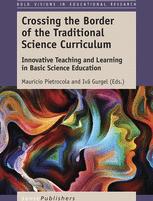

Most ebook files are in PDF format, so you can easily read them using various software such as Foxit Reader or directly on the Google Chrome browser.
Some ebook files are released by publishers in other formats such as .awz, .mobi, .epub, .fb2, etc. You may need to install specific software to read these formats on mobile/PC, such as Calibre.
Please read the tutorial at this link. https://ebooknice.com/page/post?id=faq
We offer FREE conversion to the popular formats you request; however, this may take some time. Therefore, right after payment, please email us, and we will try to provide the service as quickly as possible.
For some exceptional file formats or broken links (if any), please refrain from opening any disputes. Instead, email us first, and we will try to assist within a maximum of 6 hours.
EbookNice Team

Status:
Available0.0
0 reviewsNations worldwide consider education an important tool for economic and social development, and the use of innovative strategies to prepare students for the acquisition of knowledge and skills is currently considered the most effective strategy for nurturing engaged, informed learners. In the last decade especially, European countries have promoted a series of revisions to their curricula and in the ways teachers are trained to put these into practice. Updating curriculum contents, pedagogical facilities (for example, computers in schools), and teaching and learning strategies should be seen as a routine task, since social and pedagogical needs change over time. Nevertheless, educational institutions and actors (educational departments, schools, teachers, and even students) normally tend to be committed to traditional practices. As a result of this resistance to change within educational systems, implementing educational innovation is a big challenge. The authors of the present volume have been involved with curriculum development since 2003. This work is an opportunity to present the results of more than a decade of research into experimental, inventive approaches to science education. Most chapters concern innovative strategies for the teaching and learning of new contents, as well as methods for learning to teach them at the pre-university school level. The research is focused on understanding the pedagogical issues around the process of innovation, and the findings are grounded in analyses of the limits and possibilities of teachers’ and students’ practices in schools.